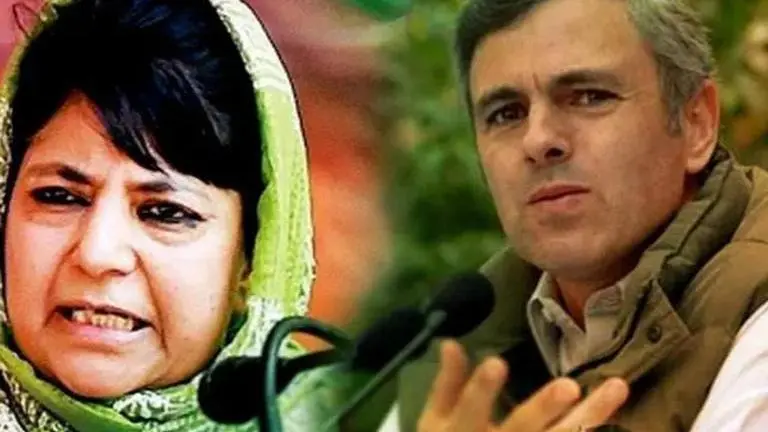Updated 1 September 2019 at 13:48 IST
Omar Abdullah and Mehbooba Mufti allowed to meet their families.
Former Jammu and Kashmir Chief Ministers Omar Abdullah and Mehbooba Mufti have been granted permission for their families to visit them at Hari Niwas.
- India News
- 3 min read

Nearly a month after National Conference (NC) leader Omar Abdullah and Peoples Democratic Party (PDP) leader Mehbooba Mufti were placed under house arrest, they have been granted permission to meet their respective families. Abdullah and Mufti were placed under house arrest as a 'precautionary measure'. The two leaders have been placed under house arrest since August 5. The decision was taken on Presidential orders and came into effect a day before the Central Government decided to revoke Article 370 and bifurcate the state into two union territories - Jammu & Kashmir and Ladakh.
Abdullah and Mufti granted visitation
Omar Abdullah’s sister, Safia and her children, were granted 20 minutes of visiting time on Saturday. Reportedly, the Abdullah’s family met him twice this week at Hari Niwas in Srinagar. This visit comes after Safia and her aunt repeatedly visited and sought permission from the Deputy Commissioner’s office to be able to meet Abdullah. Dr. Farooq Abdullah, National Conference Chairman and father of Omar Abdullah, has had his request to meet his son being continuously rejected.
Advertisement
Mehbooba Mufti’s mother and sister were granted permission to meet her at Hari Niwas on Thursday. Mufti was taken into preventive custody after trying to leave her residence despite orders. She is being provided a security cover as per her detail even at Hari Niwas. Reportedly, neither Abdullah nor Mufti has access to news channels and newspapers but officials have provided the former chief ministers with a DVD player to watch movies.
Abrogation of Article 370
Advertisement
Article 370 exempted Jammu and Kashmir from following the Indian Constitution except for Article 1 and itself. It also restricts Parliament's legislative powers in Jammu and Kashmir. It was passed in the Constituent Assembly on May 27, 1949, and is the first article of Part XXI of the Indian Constitution. The heading of this part is ‘Temporary, Transitional and Special Provisions’.
On August 5, Union Home Minister Amit Shah moved two bills and two resolutions in the Parliament. This led to the revocation of Article 370, that gave special status to Jammu and Kashmir. It also ceased to be a state and has been declared as a union territory. After being bifurcated, Ladakh also has become a union territory. Shah also asserted that with the revocation of Article 370, there will no longer exist a dual constitution in this country, stressing that Kashmir has always been an integral part of the country.
Published By : Yash Sanghvi
Published On: 1 September 2019 at 12:14 IST
